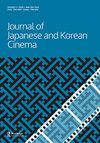The melodrama of Ozu: Tokyo Story and its time
引用次数: 0
Abstract
ABSTRACT The Japanese filmmaker Ozu Yasujirō openly expressed his disgust for melodrama in a December 1952 interview. And yet, curiously, he said Tokyo Story (Tokyo monogatari), which was released only a year later, had ‘the strongest melodramatic tendency’ among his films. Ozu never said he disliked his acclaimed 1953 film. How should we interpret this contradiction? In this essay, I take Ozu’s conflicting claims as indicative of the complexity of the discourse of melodrama in Japan. I locate Tokyo Story in two contexts: the context of Euro-American studies of film melodrama and that of the discourse on melodrama in Japanese film criticism. The first context reveals that Tokyo Story cannot be comfortably categorized as a melodrama, though the film shares elements of the melodramatic imagination. The second context demonstrates that Tokyo Story is not a simple melodrama. Ozu’s contradiction stemmed from an ambivalent definition of melodrama in Japan in the first half of the twentieth century. By closely analyzing Ozu’s Tokyo Story, and how melodrama was imagined and constructed between the 1930s and the 1950s, we can gain a stronger understanding of the film’s relation to the mode.情节剧《小津:东京物语》及其时代
摘要日本电影制作人小津康二在1952年12月的一次采访中公开表达了他对情节剧的厌恶。然而,奇怪的是,他说,仅仅一年后上映的《东京故事》(Tokyo monoatari)在他的电影中具有“最强烈的情节剧倾向”。小津从未说过他不喜欢1953年那部广受好评的电影。我们应该如何解释这种矛盾?在这篇文章中,我认为小津的矛盾主张表明了日本情节剧话语的复杂性。我将《东京故事》定位在两个语境中:欧美电影情节剧研究的语境和日本电影批评中情节剧话语的语境。第一个背景表明,《东京故事》不能被轻松地归类为情节剧,尽管这部电影有着情节剧想象的元素。第二个语境表明,《东京故事》不是一部简单的情节剧。小津的矛盾源于20世纪上半叶日本对情节剧的矛盾定义。通过仔细分析小津的《东京故事》,以及20世纪30年代至50年代情节剧是如何被想象和构建的,我们可以更好地理解这部电影与模式的关系。
本文章由计算机程序翻译,如有差异,请以英文原文为准。
求助全文
约1分钟内获得全文
求助全文
来源期刊

Journal of Japanese and Korean Cinema
Arts and Humanities-Visual Arts and Performing Arts
CiteScore
0.60
自引率
0.00%
发文量
16
期刊介绍:
Journal of Japanese and Korean Cinema is a fully refereed forum for the dissemination of scholarly work devoted to the cinemas of Japan and Korea and the interactions and relations between them. The increasingly transnational status of Japanese and Korean cinema underlines the need to deepen our understanding of this ever more globalized film-making region. Journal of Japanese and Korean Cinema is a peer-reviewed journal. The peer review process is double blind. Detailed Instructions for Authors can be found here.
 求助内容:
求助内容: 应助结果提醒方式:
应助结果提醒方式:


